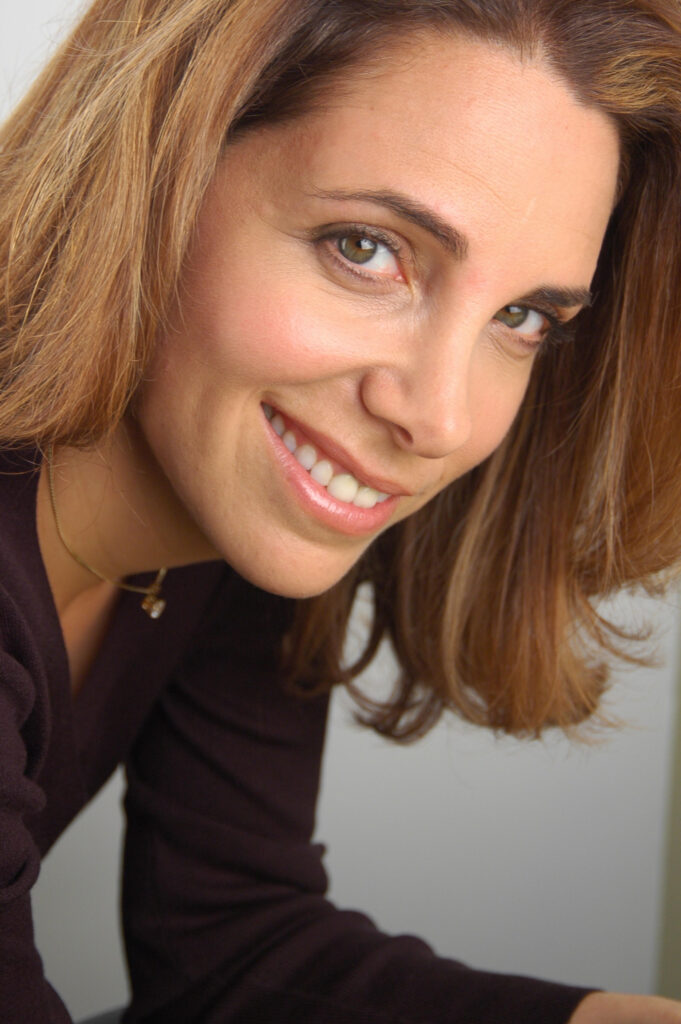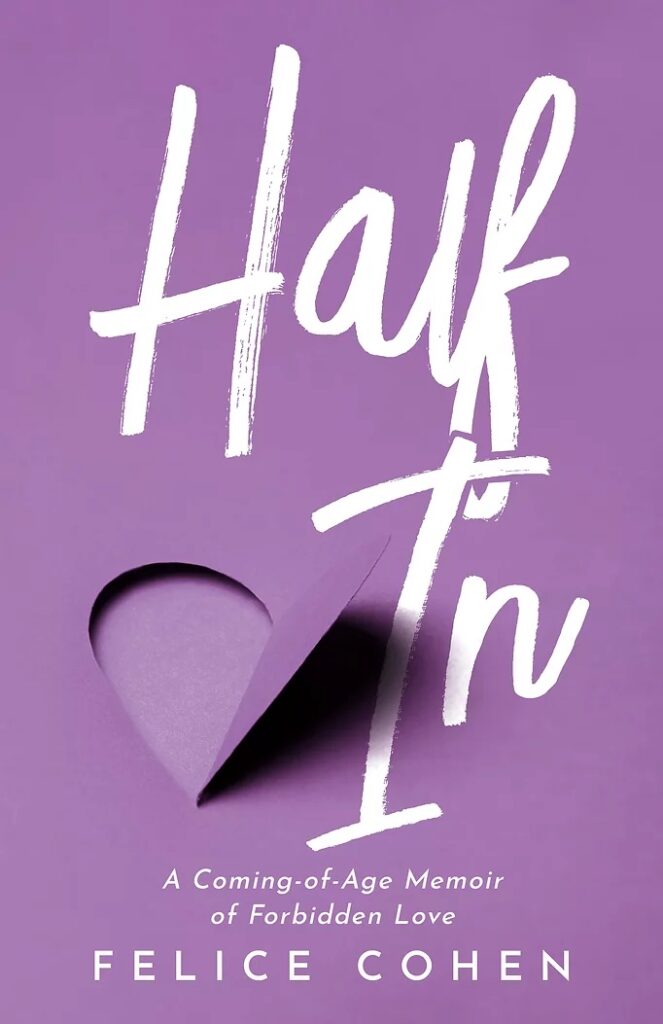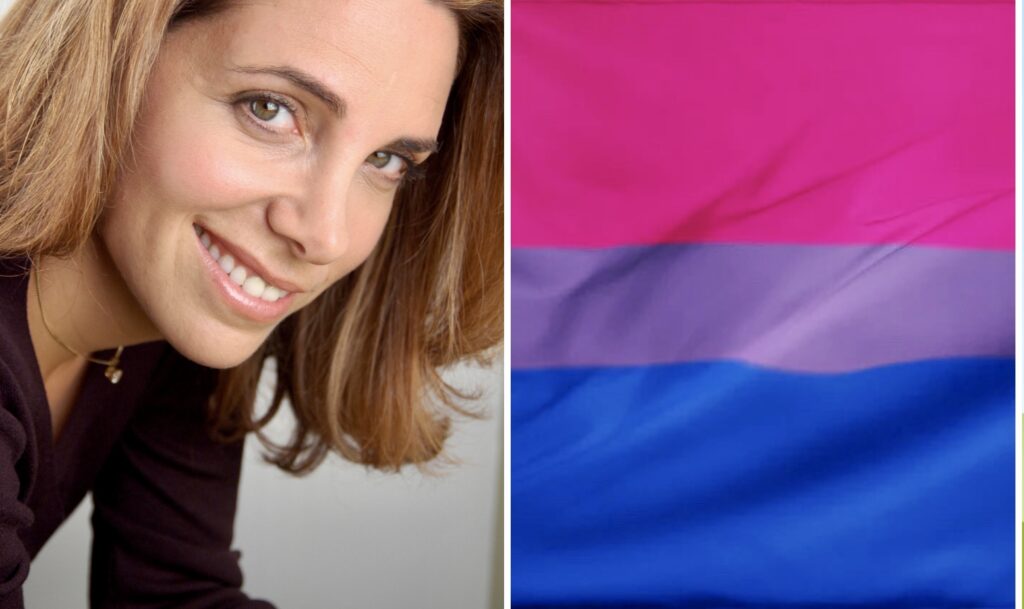Author shares coming of age story for Bisexual Awareness Week
Author Felice Cohen has written a memoir titled Half In, about discovering her bisexual orientation.
At twenty-three, I was, like other recent college graduates, hesitant about entering the real world. Focused on how to land a full-time position as a writer, falling in love was the last thing on my mind.
But fall I did.
With my boss, a woman 34 years older who had a long-term partner. It was amazing, and thrilling, and devastating, and I kept it a secret for three decades.
I had taken a job at my alma mater, the University of Massachusetts Amherst, working in Admissions and running summer orientation. In the summer of 1993, I developed a crush on my boss Sarah, never imagining it going anywhere because she was so much older and had a girlfriend. But then, against all odds, it did.
For one solid year my life revolved around her. My worry of where I belonged in the real world and what I would do in it, took a backseat to thoughts of when I would see Sarah next. I spent my days counting down the hours until our daily 4 p.m. phone calls when I would hear her whisper, “Blu,” her nickname for me. I spent mornings pacing by the front door waiting for the mailman to appear and would get that flutter in my stomach upon seeing Sarah’s distinctive handwriting on an envelope. And then there were Saturdays, waking up excited, knowing it was our one day together.
After six months of sneaking around, I had begun wanting more. Like a life together. Like no more lying. I had known this was impossible from the start. Day One Sarah said she would never leave her partner, plus there was the issue of our age difference. During one rare night together, after a heavy discussion about our non-future, I finally grasped we would never be a couple. As I drifted off to sleep, I decided I would end things the next morning.
But then, in the middle of the night, we were caught.
Sarah’s partner came home (she was supposed to be away two more nights) and found us in their bed. Did the affair end after our secret was exposed? No. However, the impact of that revelation jostled my mind. Not enough to set it straight and get me to end the affair, but enough to see how unfair the situation was to me.
Over the next several months Sarah’s partner debated whether to work it out with Sarah or leave. Sarah pulled away to deal with her public relationship, forcing me to make my own decision: continue living a lie or move to New York City and pursue my writing career, as had been my intention before the affair sidetracked me, both literally and figuratively. I chose to leave. Ironically enough, so did Sarah’s partner.
Now, during that year of my secret lesbian, age-gap, love affair with Sarah, I was harboring another secret: I was still attracted to men. I wasn’t seeking them out, I was happy with Sarah, but I wasn’t comfortable calling myself a lesbian. The word felt wrong on my tongue. At the time I thought it was fear of the assumptions that came along with being labeled. It wasn’t. It just wasn’t the right label for me.
A friend at the time told me she dated both men and women. A revelation. Sure, I had heard of bisexuals, but still, it took me by surprise.
“That’s really, like, a thing?” I asked. She had laughed and suggested I come with her to a support group for bisexual women. Again, this was the early nineties when “Love is love is love” was not emblazoned on bumper stickers and T-shirts. As far as I knew, you were either gay or straight. I wasn’t aware there was a third option.

Listening to these women describe their attractions to both genders without shame, put me at ease. I wasn’t alone. For the first time I felt I understood myself. This discovery of being bi didn’t change how I felt about Sarah, but it did change how I felt about myself. For the first time I wasn’t concerned with the burning question on repeat in my head of “Was I gay?” Suddenly, it clear. I was bi. However, as was my M.O. back then, I was secretly bi.
After Sarah, I dated women and men. And though they were all different, they did have one thing in common: their distaste for me calling myself bisexual.
“You’re a lesbian,” said the women I was dating.
“You’re straight,” said the men.
I would correct them each time and say, “I’m bi.”
“No, you’re not,” they’d reply. “You’re with me, you’re (gay) / (straight.)”
Being told I wasn’t bi, couldn’t be bi, because I was with a man or a woman at the time made me confused. Were they right? Had my previous relationships been a phase? Did that mean they didn’t count? By denying me of my past, it felt like they were trying to make me erase a part of myself. Why was me being bisexual a threat to my partners? I would explain to them I could just as well leave a man for another man, or leave a woman for another woman, and they would say my being bi put our relationship in jeopardy. How?
Because of misconceptions.
In the last few decades, the LGBTQ community has become more visible and has gained more acceptance, however when it comes to bisexuals, many misunderstandings remain: bisexuals are in denial, are confused, are going through a phase, or, the real kicker, are more likely to cheat. These myths are damaging. The only thing being bisexual means is that I’m attracted to a person, not a gender. Not that I’m constantly searching for a new date. These prejudices, within and outside of the LGBTQ community, can lead to making bisexual people feel unseen.
Exactly how I felt with past partners.
By trying to put me in a box I didn’t feel comfortable in, they were denying me of who I was and making me feel invisible. The people who claimed to love me, including Sarah, denied me of allowing myself to be who I was. Honestly, at the time, I didn’t mind being invisible. It went hand in hand with my predilection for hiding. I had been keeping my bisexuality and my age-gap love affair a secret for decades. I didn’t realize deep down it was hurting me.
What’s helped me to finally come clean on both subjects? Time and age for sure, but also society coming around. After a quick Google search, I found 36 different types of sexualities, including aromantic (which, at first glance, I thought meant you were attracted to smells. It doesn’t. It means having little or no romantic attraction to others.) To me, this long list says that our culture has become more accepting, and this has allowed me to stop hiding who I am: a bisexual female who once loved an older woman. Revealing my affair after keeping it a secret for three decades, has released the shame of who I was, who I am, and who I choose to love.

I titled my new book Half In because that’s how I’ve always been in relationships: one foot out the door. Being half in allowed me to leave at a moment’s notice without my heart getting hurt. I learned to be half in from Sarah, assuming that’s how relationships work. It’s not. Or at least it shouldn’t be. Being half in may protect you from getting your heart broken, but the flip side means you miss out on experiencing what it feels like to fully be in love. And that’s what I want. Writing this book was the only way I knew how to get it.
Pouring my heart out onto the page helped me to understand how the lies were hurting me, but it was putting the book out into the world that was the final step in my healing. Sharing my truth forced me to face the reaction from others, something I’d always feared. And while I call the book “half in,” it took me being “all in” to write it. So far, it’s been worth it.
About Felice Cohen
Felice Cohen’s new book, Half In: A Coming-of-Age Memoir of Forbidden Love will be out on September 20, 2022. Half In has been spotlighted in Publisher’s Weekly Indie Spotlight, reviewed by Kirkus Reviews, Foreword Reviews, chosen as Lamba Literary’s Most Anticipated Books for September, and was endorsed by Rita Mae Brown, author of Rubyfruit Jungle.
Bisexual Awareness Week (September 16-23) advocates for social acceptance of the bisexual community, and bisexual rights. #BiWeek






